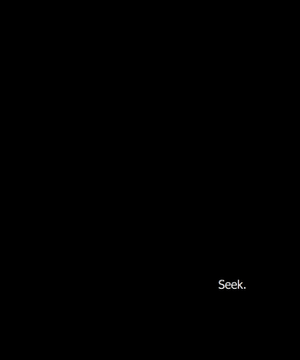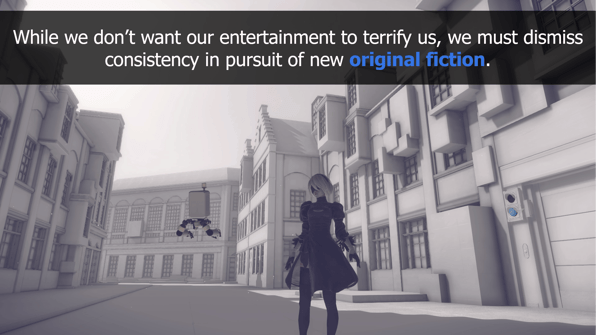
Right on cue, David Lynch reappeared. We were neck-deep in adaptations and reboots, and he shouted the death-song of the shared universe, if we could tune our ears to hear that pitch.
Lynch might be arriving back on the scene with his weird Twin Peaks baby cradled in his arms, but now, the baby is grown up, and strong as ever.
Why isn't there as much original fiction these days?
The reader's attention is directed to the Amazon bestsellers, the box office, and the state of the world. We're holding on, and when we hold on, we play it safe.
The entertainment sphere—specifically what we call content these days—has become far too specific. It's made a modest, middle-class home inside SEO's colon. (Content) entertainment longs to be understood, and palatable, and marketable. It's said artists can't predictably monetize their work, so we want be able to attach dollar signs to it (and euro signs to it).
Sure, it'd be a paradise-riot to have a world where we didn't have to depend on monetary input to create ongoing consistent originality, but in art, confusing people, even for a moment, scares the people so hard they'd spill their coffee all over their Kindles.
Take a look at the Amazon bestseller list. Take a look at the box office returns. Take a look at the state of the world.
We're holding on. When we hold on, we play it safe, in art and in leisure. We haven't the bravery to sidestep ultra-predictable, just look at our damn environment. We want to see familiar ideas and familiar franchises from our childhoods—or from our parents' childhoods, the gold-standard in blankey-warm, all-sheltering wing of the dragon.
We want that predictability, that safety. Originality has no place right now. Originality won't save us. Ironic that consistency in entertainment makes us feel safe from the monsters dragging the world backward. All across the Amazon bestseller list, you see predictable mysteries, you see self-help books, you see young adult fiction. You see what has been anointed. It's all predictable. It's all approved. It's all tied in. It all has board games, iPhone slot machines, and maybe even an HBO series in development.
Why isn't there as much original fiction these days? Because if it got too original it would probably set us on fire. It'd probably make us think too hard and swerve the world further off the rails. It might set some psycho off, misunderstanding the point. No original fiction. Consistency reminds us that we're on the right track. If the same thing keeps coming up on TV over and over again—the same themes, the same reminders—it means:
- We haven't died yet
- Our ideas haven't died yet
If we can get reminders that we haven't gone off the deep end, we creative and content consuming individuals, we might ride out this stupid storm that we call the universe.
How can we combat this?

We don't want to be terrified. But we must terrify ourselves.
We don't want to live in a world of the unknown, whether it's in art, or on a planet that may be dying. Themes in the name of something that isn't refined. Planning or buying corporate mandates to have it colorful one way or another.
(Not to say that color isn't a good, beautiful idea.)
We want ideas. We want big, weird fish. We need to engage with something that's not simply an homage. We need to grow up. We need to become the people that we meant to become when we were young.
How do we come beat this shared universe addiction? The feeling that everything that we throw out there is all interconnected? How do we combat that? By owning our own creativity in an environment where we publish far too much about ourselves onto the internet, both loving our own faces, and averting our gaze from ourselves, fearing actual sincerity? We still remain afraid to literally craft something new. We'll take pictures of food because others have taken pictures of food. We'll make jokes about damn good cups of coffee and cherry pie because that joke has been codified. We forget that dish of weirdness was once original fiction unto itself, not a shared, mimetic, collective thought.
When it turns out that something is not what we expected something, like Twin Peaks: The Return, and instead of being part of that Twin Peaks world, and is instead something wholly, bizarrely, cruelly original once again—in a way that we did not anticipate—we should be inspired. We should reach out into unrelated universes of experimental, unpredictable, and initially opaque bits of creativity. We need to stop saying "content." We need to throw money at the clock and give people with weird visions the opportunity to sit and think and meditate when others do not have the time or skill to do so.
Wouldn't that be a nice world? A shared universe, remaining a brilliant tool to attract new audiences, is still a marketing exercise at its core. We must combat this with something odd.
What does the future look like?
There are opportunities for more intimate, driven content. There's opportunity for greater emotional intimacy between an audience and an artist—between consumers and new ideas. We needn't pursue content. We needn't even consider ourselves consumers anymore.
This isn't simply a distribution of dollars, it's a distribution of attention. The marketplace is expanding. The niches are diversifying. If we could summon the same courage to embrace original fiction as we did when Twin Peaks first appeared in the late 1980s, we might have something really remarkable and our hands. We'd have an entire landscape of artists supported by communities, driven by shared thought, nurtured by the freedom to think harder and longer about singular visions, instead of being thrown forward into an oversaturated yell-chamber.

